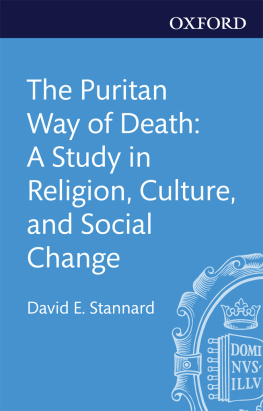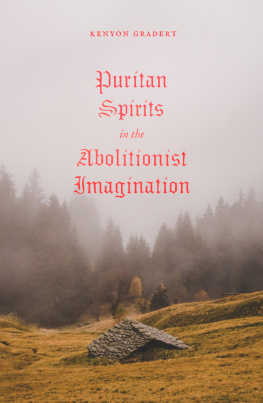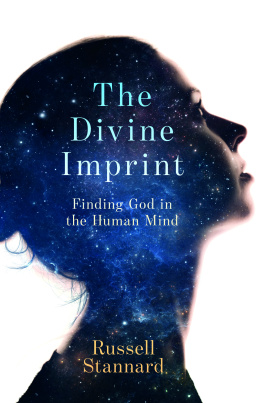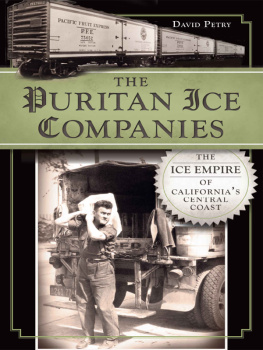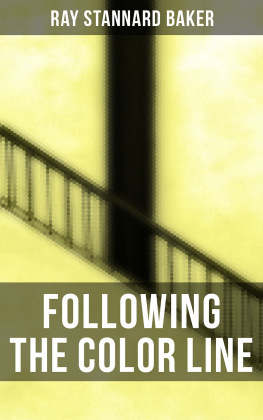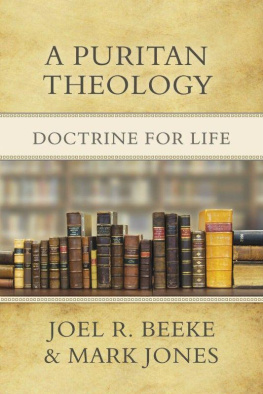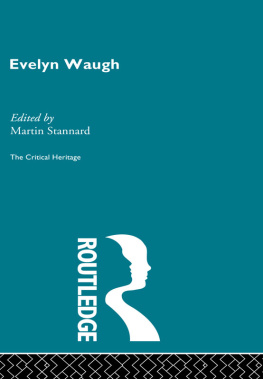David E. Stannard - The Puritan Way of Death
Here you can read online David E. Stannard - The Puritan Way of Death full text of the book (entire story) in english for free. Download pdf and epub, get meaning, cover and reviews about this ebook. year: 1977, publisher: OUP Premium, genre: Science. Description of the work, (preface) as well as reviews are available. Best literature library LitArk.com created for fans of good reading and offers a wide selection of genres:
Romance novel
Science fiction
Adventure
Detective
Science
History
Home and family
Prose
Art
Politics
Computer
Non-fiction
Religion
Business
Children
Humor
Choose a favorite category and find really read worthwhile books. Enjoy immersion in the world of imagination, feel the emotions of the characters or learn something new for yourself, make an fascinating discovery.
- Book:The Puritan Way of Death
- Author:
- Publisher:OUP Premium
- Genre:
- Year:1977
- Rating:5 / 5
- Favourites:Add to favourites
- Your mark:
- 100
- 1
- 2
- 3
- 4
- 5
The Puritan Way of Death: summary, description and annotation
We offer to read an annotation, description, summary or preface (depends on what the author of the book "The Puritan Way of Death" wrote himself). If you haven't found the necessary information about the book — write in the comments, we will try to find it.
The Puritan Way of Death — read online for free the complete book (whole text) full work
Below is the text of the book, divided by pages. System saving the place of the last page read, allows you to conveniently read the book "The Puritan Way of Death" online for free, without having to search again every time where you left off. Put a bookmark, and you can go to the page where you finished reading at any time.
Font size:
Interval:
Bookmark:


DAVID E. STANNARD
OXFORD UNIVERSITY PRESS Oxford New York Toronto Melbourne
OXFORD UNIVERSITY PRESS Oxford London Glasgow New York Toronto Melbourne Wellington Nairobi Dar es Salaam Cape Town Kuala Lumpur Singapore Jakarta Hong Kong Tokyo Delhi Bombay Calcutta Madras Karachi
Copyright 1977 by Oxford University Press, Inc. First published by Oxford University Press, New York, 1977 First issued as an Oxford University Press paperback, 1979 Library of Congress Cataloging in Publication Data
Stannard, David E The Puritan way of death.
Includes bibliographical references and index. 1. Death. 2. PuritansNew England. I. Title. BT825.S76 230 .5 9
76-42647 ISBN 0-19-502226-2 ISBN 0-19-502521-0 pbk.
printing, last digit: 10 9 8
Printed in the United States of America
To my parents who have always understood
And yetin fact you need only draw a single thread at any point you choose out of the fabric of life and the run will make a pathway across the whole, and down that wider pathway each of the other threads will become successively visible, one by one.
HEIMITO VON DODERER
The Demons
An essay, wrote Dr. Johnson, is "a loose sally of the mind; an irregular undigested piece." Now that is not the sort of definition designed to encourage a modern scholar to refer to his or her work as an essay. Still, what follows is an essaybut I beg for a newer definition. "A rank of spotlights" is what Perry Miller once called a collection of his essays, and that seems good enough for me. Thus, what follows is a tentative, occasionally frankly speculative effort to shine a spotlight that it is hoped will illuminate some portions of a neglected area of study at the same time that it may make more comprehensible certain problems that continue to loom large in the modern consciousness. This is a work designed, then, to open a field of inquiry to questions rather than one claiming to dictate answers. The focus is on the human concern with death. The Puritans of New England are the people chosen to serve as exemplars of this concern.
Almost a century and a half has now passed since Alexis de Tocqueville began his monumental work on the state of American civilization by observing: "If we were able to go back to the elements of states and to examine the oldest monuments of their history, I doubt not that we should discover in them the primal cause of the prejudices, the habits, the ruling passions, and, in short, all that constitutes what is called the national character."( 1.) Historians today are generally more skeptical of such implied determinism than were Tocqueville and his contemporaries, but it may well be that something of an intuitive sense of agreement with Tocqueville on this matter is at least in part responsible for the fact that Americas Puritans are today the objects of so much intensive historical study; indeed, considering their limited numbers in the population of American history, probably no other group of individuals has received as much historical attention in the past few decades.
There is, of course, another possible explanation for this interest. After he had been warned away from Puritanism as an object of study because "that field," his instructors noted, "was exhausted, all that wheat had long since been winnowed, there was nothing but chaff remaining," Perry Miller proceeded with his work anyway, largely because, as he was later to recall, the relative isolation and homogeneity of Puritan society afforded him what he called "an ideal laboratory."( 2.) It has become fashionable in recent years to criticize Millers work for precisely this assumption: scores of books and articles have appeared during the past two decades that have taken as their primary purpose the undoing of Millers vision of Puritan homogeneity. Most of these works have been detailed community studies, and many of them have been of exceptional quality and value. Whether they have seriously compromised Millers work is still a question for debate; but it seems not at all improbable that their motivation has in large measure been similar to Millersthat is, they have seen in Puritan culture and society the lineaments of numerous matters that transcend the world of those earliest New England settlers.
I should confess here that, while I do not literally regard early New England as either the seedbed of American national character or as a laboratory for controlled research, I have in subtler ways been influenced in this study by the motivating ideas that undergirded the work of both Tocqueville and Miller. The Puritans of New England lived life and, as this book attempts to show, faced death with an intensity virtually unknown in modern American life. As a result, I believe that much of importance in subsequent American history can be better understood by closely examining the ideas and actions of the Puritans; I believe that Puritan culturethough not the whole of early New England societywas sufficiently homogeneous for an extended period of time to permit perhaps more responsible generalization than would be possible in most other American cultural settings; and I believe that by focusing on a single critical thread of that culturein this case the problem of death"other threads," as Heimito von Doderer puts it in the words chosen to serve as the epigraph for this study, "will become successively visible, one by one."
In this endeavor I have been greatly assisted by several persons. Their number is not large, but my indebtedness to them is enormous. Sydney E. Ahlstrom, William A. Clebsch, David Brion Davis, Bruce Kuklick, and Michael McGiffert all read and commented helpfully on earlier drafts of portions of the manuscript. Kai T. Erikson, Stephen Foster, and Richard Warch have provided insightful criticism and advice concerning the entire study. But it is to Edmund S. Morgan, for his criticism, his guidance, and most of all his warm personal support, and to Valerie M. Stannard, for her assistance with interpreting French and German language materials, for ironing out faulty logic and cumbersome prose in certain troublesome passages, and for always being there when it counted, that I owe my greatest personal and intellectual debts.
Another debt of another kind should at least be acknowledged here. It is to Ezra Pound for writing, many years ago, some words that are relevant to every work of history that has ever been produced:
And even I can remember
A day when the historians left blanks in their writings,
I mean for things they didnt know.
The day Pound envisioned has not yet come to pass, so the reader is advised against searching for blank spaces in the pages that follow, though no doubt more than a few should exist. It is hoped, however, that some of the missing answers, and some of the missing questions, will surface in a larger book on changing perceptions of the life cycle in American culture that I am now in the process of researching. In a sense, then, as many a Puritan would have agreed, death is only a beginning.
Grateful acknowledgment is made to The American Historical Review and American Quarterly for permission to include, in , revised versions of work previously published in their pages. Frontispiece. Photograph by Daniel Farber, printed with permission.
Font size:
Interval:
Bookmark:
Similar books «The Puritan Way of Death»
Look at similar books to The Puritan Way of Death. We have selected literature similar in name and meaning in the hope of providing readers with more options to find new, interesting, not yet read works.
Discussion, reviews of the book The Puritan Way of Death and just readers' own opinions. Leave your comments, write what you think about the work, its meaning or the main characters. Specify what exactly you liked and what you didn't like, and why you think so.

